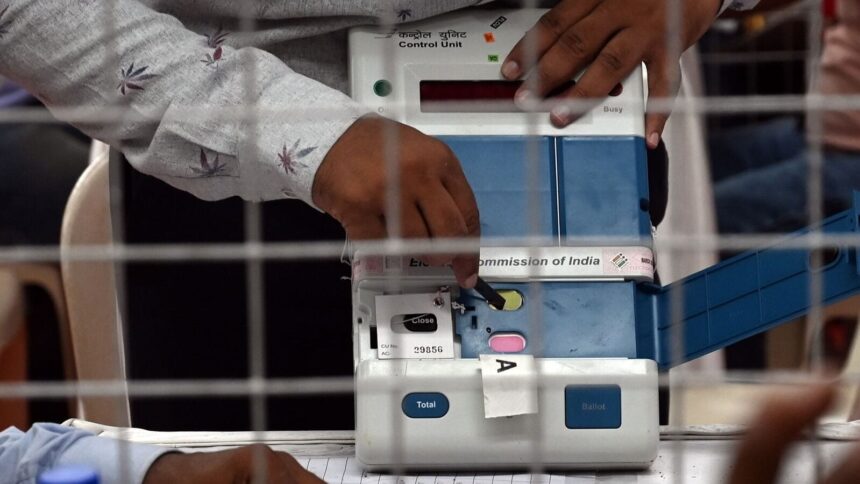The Election Commission (EC) of India has recently revealed the dates for the Maharashtra and Jharkhand assembly elections, sparking concerns from a senior Congress leader regarding the reliability of electronic voting machines (EVMs).
The Maharashtra assembly elections are scheduled to take place in a single phase on November 20, with the results being announced on November 23. On the other hand, the Jharkhand polls will be conducted in two phases, on November 13 and November 20, with the outcome being declared on November 23.
In a controversial statement, Congress leader Rashid Alvi expressed doubt over the security of EVMs by drawing a parallel to Israel’s alleged capabilities of targeting individuals using communication devices. Alvi proposed that the upcoming elections in Maharashtra and Jharkhand should opt for traditional paper ballots instead of EVMs.
Alvi’s remarks carry weight due to their timing, coinciding with the announcement of the election dates. He emphasized the need for the Opposition in Maharashtra to push for paper ballots to ensure fairness in the electoral process.
Moreover, Alvi pointed out the close relationship between the Indian Prime Minister and Israel, suggesting that the expertise of Israel in such matters could raise concerns over the integrity of EVMs.
On the contrary, the Election Commission responded to these allegations by assuring the public that EVMs are completely secure and reliable. Chief Election Commissioner Kumar reiterated the foolproof nature of EVMs, inviting any further questions or concerns on the matter.
In a separate incident, Congress leader submitted a memorandum to the Election Commission regarding irregularities in the election process in Haryana. Ramesh hoped for the Commission to address these issues appropriately and ensure a fair electoral procedure.
Overall, the Election Commission’s announcement of the poll dates has stirred up debates surrounding the use of EVMs in the upcoming Maharashtra and Jharkhand elections, highlighting the need for transparency and accountability in the electoral process.










